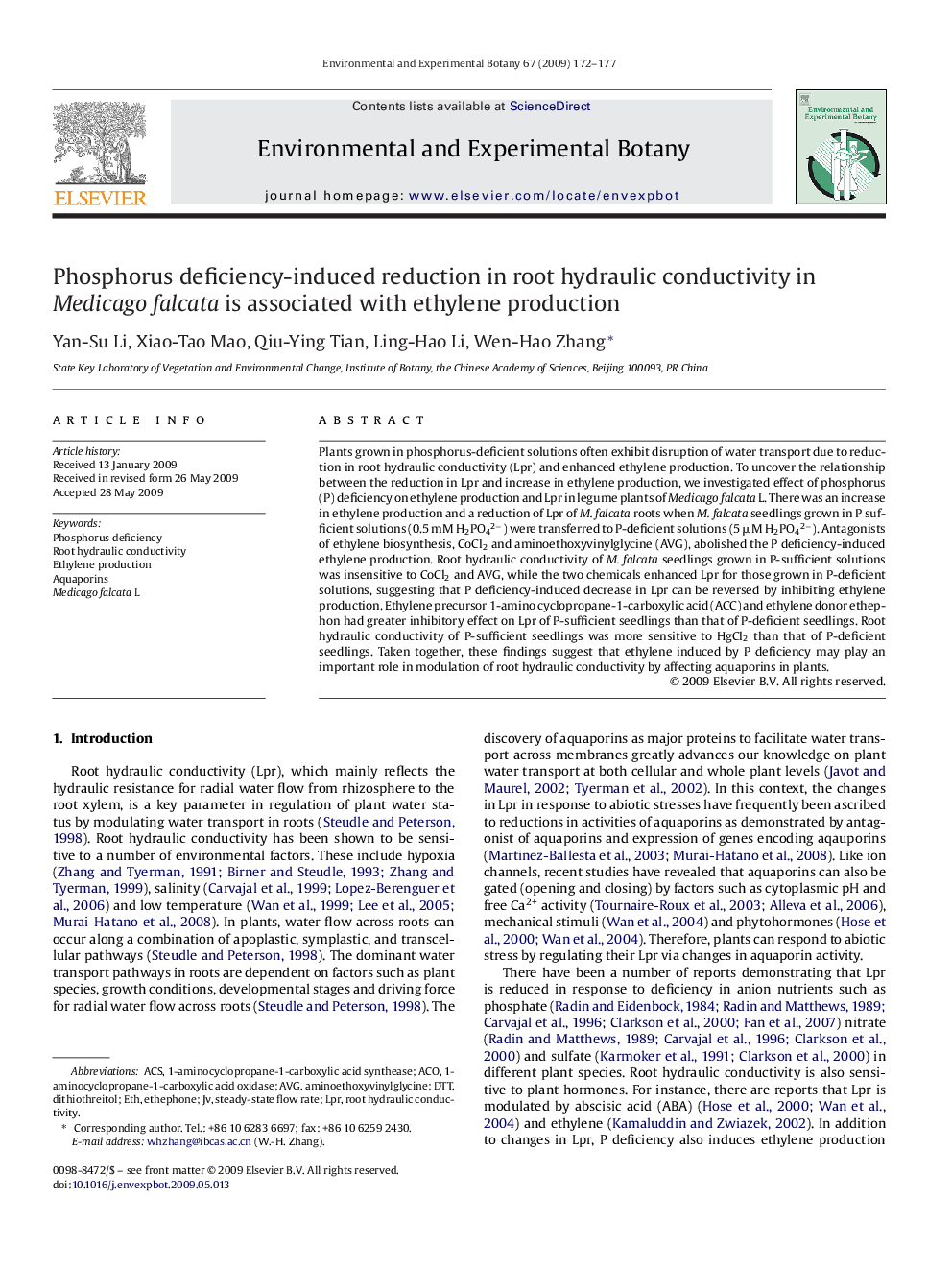| Article ID | Journal | Published Year | Pages | File Type |
|---|---|---|---|---|
| 4555048 | Environmental and Experimental Botany | 2009 | 6 Pages |
Plants grown in phosphorus-deficient solutions often exhibit disruption of water transport due to reduction in root hydraulic conductivity (Lpr) and enhanced ethylene production. To uncover the relationship between the reduction in Lpr and increase in ethylene production, we investigated effect of phosphorus (P) deficiency on ethylene production and Lpr in legume plants of Medicago falcata L. There was an increase in ethylene production and a reduction of Lpr of M. falcata roots when M. falcata seedlings grown in P sufficient solutions (0.5 mM H2PO42−) were transferred to P-deficient solutions (5 μM H2PO42−). Antagonists of ethylene biosynthesis, CoCl2 and aminoethoxyvinylglycine (AVG), abolished the P deficiency-induced ethylene production. Root hydraulic conductivity of M. falcata seedlings grown in P-sufficient solutions was insensitive to CoCl2 and AVG, while the two chemicals enhanced Lpr for those grown in P-deficient solutions, suggesting that P deficiency-induced decrease in Lpr can be reversed by inhibiting ethylene production. Ethylene precursor 1-amino cyclopropane-1-carboxylic acid (ACC) and ethylene donor ethephon had greater inhibitory effect on Lpr of P-sufficient seedlings than that of P-deficient seedlings. Root hydraulic conductivity of P-sufficient seedlings was more sensitive to HgCl2 than that of P-deficient seedlings. Taken together, these findings suggest that ethylene induced by P deficiency may play an important role in modulation of root hydraulic conductivity by affecting aquaporins in plants.
